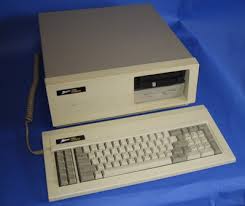
New bottle: OMB’s PC mandate recalls the desktop buys of yesteryear
Consolidation of PC buying and category management have their antecedents in last century's Air Force IDIQs.
Every generation seems to learn the same lessons. The PC-buying mandate from the White House, driven by category management, provides a case in point.
Consolidated buying of PCs has a long history in the federal government, nearly as old as the PC itself. The procurement policy chief, Anne Rung, and the White House CIO Tony Scott gave agencies their orders: from now on you must buy PCs from one of three contract vehicles. You’ll need a good reason not to use NASA SEWP, NITAAC CIO-CS or the GSA Multiple Award Contract Schedule 70, which manages to stay relevant.
In the 1980s and 1990s, the Air Force ran a series of indefinite delivery, indefinite quantity (IDIQ) contracts under which DoD agencies were to buy PCs. When I got to town, the Air Force was just about to finalize awards for Desktop IV. It followed Desktop III, II and I, which together brought millions of 8088, 80286 and 80486 machines — and the productivity software they ran — to federal desktops.
The government argued with itself over whether the contracts ought to be mandatory, but for the most part the desktop deals delivered the promised quantities. The IDIQs shrewdly presaged category management by bringing order to what looked like a gold rush market.

Numerous vendors chased those deals. The Air Force received regular protests and final awards occurred months or years late. But the industry and the government soldiered on. Some vendors fared better then others. Unisys famously decided to build its own machines under Desktop III and lost money on every one it shipped. Zenith, with its built like iron 286 machines, became an established supplier — until it wasn’t anymore. These were the days when a given issue of the no longer in print Computer Shopper would come out twice as thick a January Modern Bride.
The Air Force awarded the last of the Desktop IDIQs, Desktop V, in 1996. Zenith, by then called ZDS, showed its age and was eventually kicked off the contract for a growing order backlog.
CompuAdd, GTSI, Hughes, Sysorex, Unisys, Zenith — the names of yesteryear have exited the PC business or disappeared altogether, along with Compaq, DEC, IBM, Gateway, Toshiba, Zeos and dozens of others. Today the PC business is still competitive and changing, but like television sets, no longer exciting. Time was, a new Intel chip and the consequent new machines would garner the same attention as a new mobile device did in 2013 or so, and a new Pontiac did in 1963.
Yet the government still buys things in large quantities, including computers. GWACs may have replaced the agency IDIQs of the last century, but the need to consolidate for value continues.
Copyright © 2025 Federal News Network. All rights reserved. This website is not intended for users located within the European Economic Area.
Tom Temin is host of the Federal Drive and has been providing insight on federal technology and management issues for more than 30 years.
Follow @tteminWFED
More from Federal News Radio

OFPP, GSA raise the stakes on new acquisition approach




